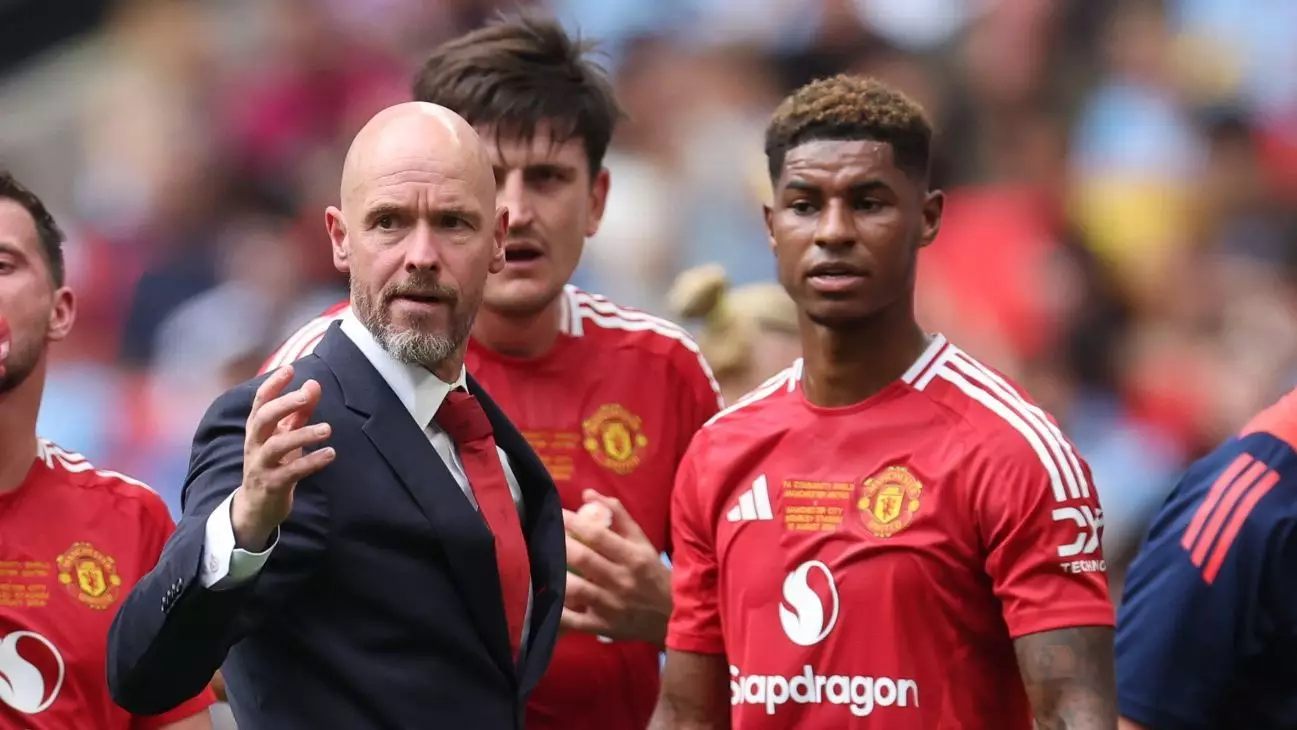In the high-stakes world of football, a manager’s choices are continuously scrutinized, and Erik ten Hag, the head coach of Manchester United, has recently found himself at the center of speculation regarding his tactical decisions. Following a goalless draw against Crystal Palace, opinions surfaced suggesting that his decision to bench key forward Marcus Rashford might be a reflection of unseen tensions or disagreements within the team. In an environment where every movement and decision can provoke analysis from commentators and fans alike, it is essential to dissect these claims critically.
Ten Hag defended his decision to rotate players in the lineup, citing the need for fresh legs and a strategy to manage player form throughout the season. Some may perceive rotation as a gamble, especially when it involves a player like Rashford, who, only days prior, had excelled on the pitch, scoring multiple goals in back-to-back matches. However, any seasoned player or coach understands that consistent performance requires not just skill but also the capability to stay fit and adapt to a grueling schedule of matches. Consequently, Ten Hag’s belief in rotating his squad may be rooted in a long-term vision rather than short-term results.
The clash against Crystal Palace demonstrated both promise and frustration for Manchester United. Known for their aggressive attacking style, the team seemed to dominate possession during the first half but faltered when it came to converting opportunities into goals. Alejandro Garnacho, who replaced Rashford in the starting lineup, had moments where he could have influenced the game significantly, yet he failed to capitalize on critical opportunities, leaving fans wondering about the impact that Rashford might have had on the scoreline. Such scenarios emphasize the importance of player synergy and teamwork, key elements that can be disrupted by changes in the lineup.
The role of pundits in shaping fan discourse cannot be overlooked. Comments made by pundits like Jamie Redknapp can sometimes create a narrative that overshadows the on-field reality. When speculation suggests interpersonal conflicts between a player and a manager without solid evidence, it risks misleading fans and creating unnecessary tension. Ten Hag’s rebuttal reflects a broader issue in modern football: the delicate balance between public perception and locker room dynamics. As he stated, the speculation is unwarranted when the rationale behind his decisions stems purely from strategic choices.
United’s draw leaves them languishing in the bottom half of the table, a position that demands immediate rectification. With tough matches against FC Twente in the Europa League and a competitive Premier League encounter against Tottenham looming, finding the right balance in the squad becomes imperative. Ten Hag’s rotation policy must not only focus on the present moment but also consider the season’s long-term implications. As the team moves forward, the focus should be on collective improvement and adaptability to avoid further speculation and ensure the momentum that fans and players alike crave.


Leave a Reply